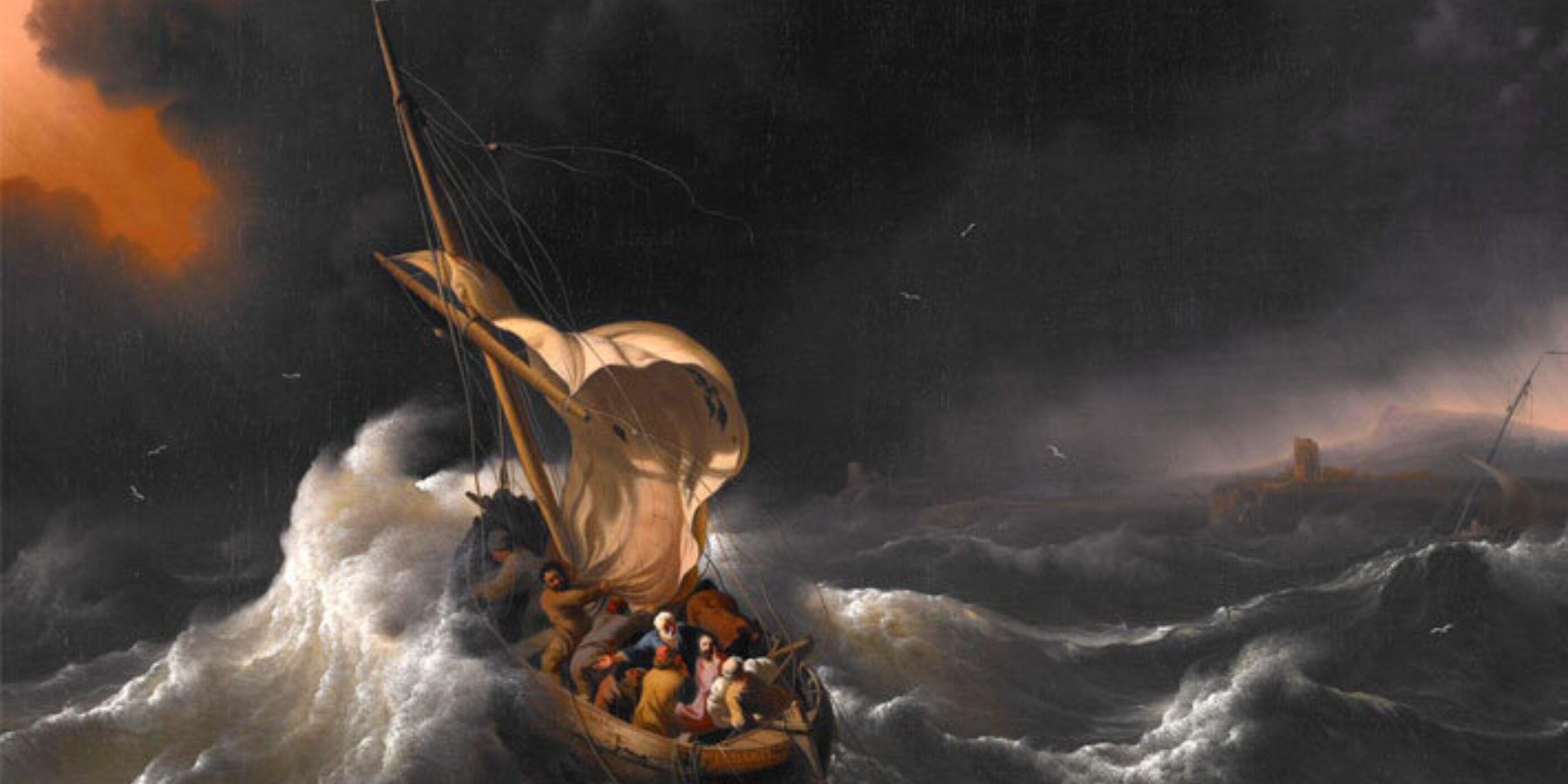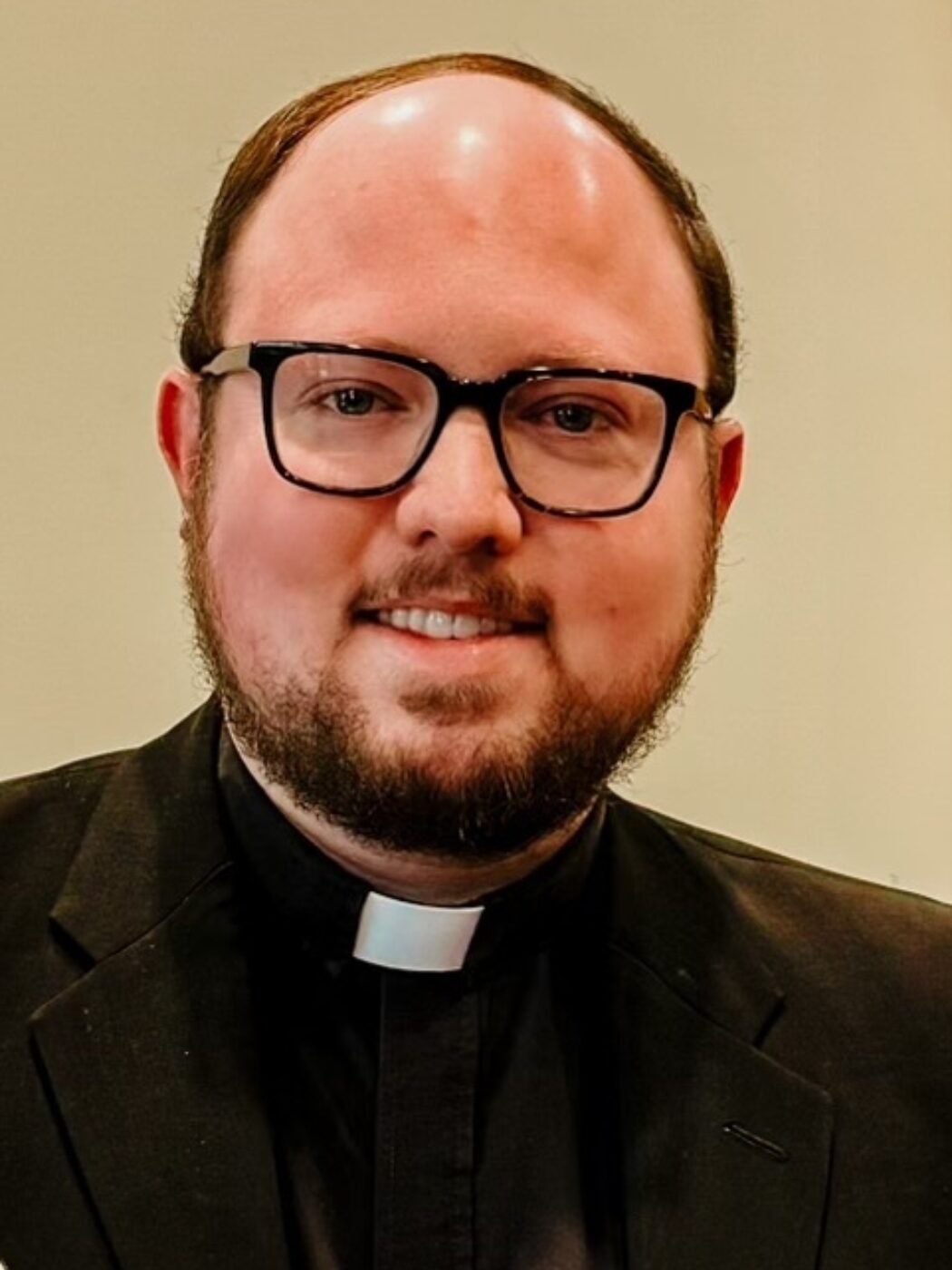St. John Henry Newman opined that when God’s plan perplexes us, our perplexity can still be an immense service to God, and to our personal holiness. Newman goes on, “God has created me to do Him some definite service. He has committed some work to me which He has not committed to another. I have my mission. I may never know it in this life, but I shall be told it in the next.”
In St. Mark’s gospel today, for the Twelfth Sunday in Ordinary Time, we drop in on a moment of chaos where the apostles’ sense of mission briefly comes apart. A violent storm was tossing the Sea of Galilee; water was pouring into the boat, threatening to sink it. But a watery death wasn’t the apostles’ greatest fear, as seasoned mariners. It was instead the dread that Jesus’ mission might come to a bad end—and that natural elements might somehow overcome the supernatural.

Jesus remains asleep in the stern, the most stable part of any boat. He is peacefully at rest on a cushion—clearly a planned nap. Young students today would call this a ‘flex,’ a soft display of power signaling that Jesus is untroubled by mere natural elements—just as the author of a book is unafraid of the elements in his own story. As God the Father spoke creation into being, so does Jesus speak the storm into stillness. He then rebukes the apostles, not for being afraid, but for having such low expectations of the Almighty.
God is the Creator of matter and space, of time and thought, of reason and emotion, and of every idea our minds can conceive. Every act, big or small, is effortless for him. It costs him nothing to enact miracles that seem impossible causes to us. Yet in weaker moments, we still place human-scale limits on God’s power—even worrying that our requests might be too much for him to handle. The apostles feared, for an instant, that the storm on the Sea of Galilee might defeat Christ and sink his mission.
Just as God appeared to Job in a fearsome whirlwind to show that his design was too immense to comprehend, so does Christ allow a storm to toss the boat for a while before showing the apostles he is in command of both heaven and earth. The apostles’ perplexity gave glory to God, because, in the end, it helped them find the nettle to trust Jesus and his plan.
In the arresting film A Man for All Seasons, Paul Scofield, playing the role of St. Thomas More (whose memorial we celebrated yesterday), explains this same hope to his daughter Meg.
“God made the angels to show Him splendor, as He made animals for innocence and plants for their simplicity. But man He made to serve Him willingly, in the tangle of his mind. If He suffers us to come to such and such a case that there is no escaping, then we may stand to our tackle as best we can—and yes, Meg, then we can clamor like champions, if we have the spittle for it. But it’s God’s part, not our own, to bring ourselves to such a pass.”
We may not know the fullness of our mission on earth just yet, but we can be assured that if God leads us through a tempest, even our perplexity will make way for faith in a plan that is “too wonderful for me, far too lofty for me to reach.” (Ps. 139)


